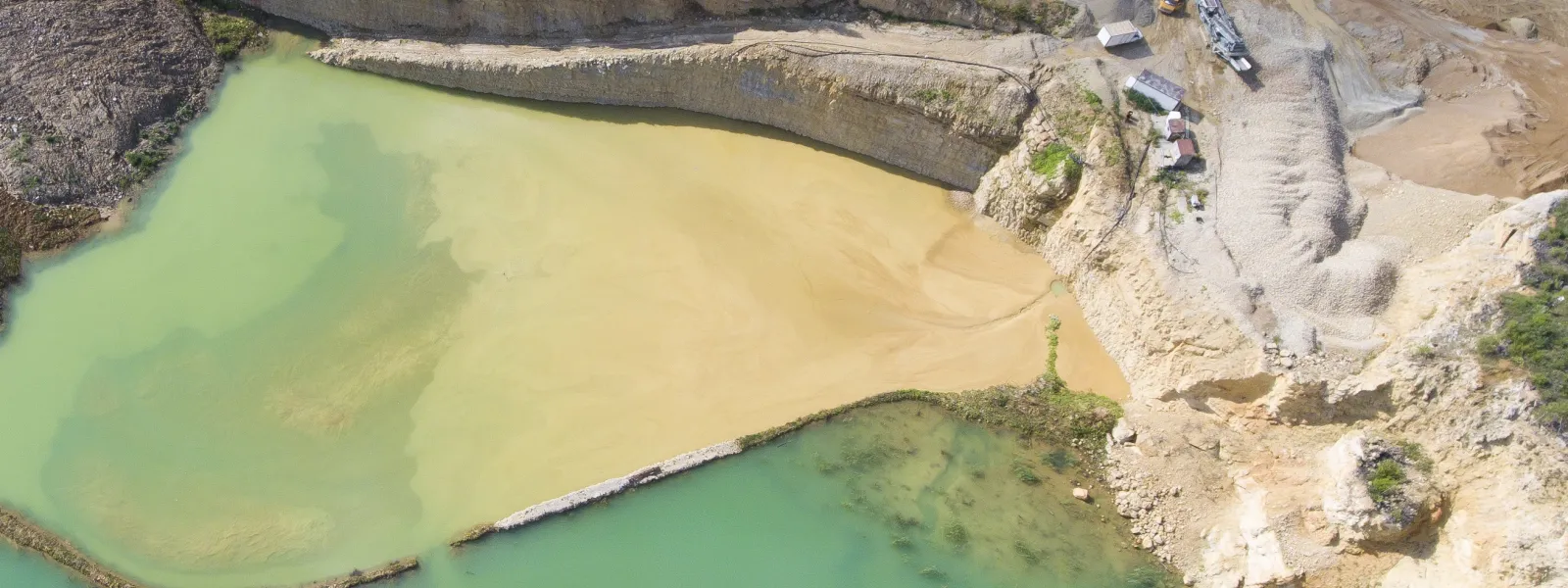
Watch Out! The Mining Industry Wants to Dump its Waste in the Ocean
By Florencia Ortúzar, AIDA attorney, and Karol Rodríguez, AIDA intern
Mining gives rise to a serious problem: toxic waste. Tailings from ore extraction have been known to damage the environment and communities living near dump sites. Responsible management, then, is critical if we desire economic development that brings more benefits than problems.
In Chile, mine companies are running out of places to dump their dangerous byproducts. Inadequate disposal has already caused substantial harm; nobody wants toxic waste near their home or community. Even depositing tailings in dry areas with low biodiversity is not safe, because rain and floods can wash contaminants into communities.
In this context, Chilean mining companies have come up with the “brilliant” idea of depositing mine tailings into the sea, through a pipeline that would transport tons of waste to a valley on the ocean floor.
The Ocean: delicate and mysterious cradle of life
The ocean is one of the greatest mysteries on our planet. In fact, 95 percent of the ocean floor has not been mapped, which means we know only 5 percent of it. We know more about the surface of the moon than about the depths of the ocean.
What’s more, oceans contain the most complex ecosystems on the planet. The variables involved in their health and dynamics are infinite. Given these unknowns, it is impossible to predict the effect that mine tailings would have on the ocean floor.
This uncertainty is reason enough to apply the precautionary principle, an important legal tool to prevent environmental degradation caused by human development. We don’t know how the waste may affect complex marine ecosystems, their many species, or even ourselves, who take nourishment from fish and other seafood.
So how could we sleep soundly while a pipeline funnels contaminated, and certainly hazardous, waste into our oceans? The effects of the environmental damage could be large and uncontrollable, and, once the water is released into the ocean, there would be no turning back.
An international workshop on the idea
To understand more about this worrying initiative, two renowned Chilean environmentalists—Juan Pablo Orrego, president of Ecosistemas, and Flavia Liberona, executive director of Fundación Terram—attended an international workshop in Lima in June. Participants at the workshop, convened by the Joint Group of Experts on the Scientific Aspects of Marine Environmental Protection and the International Maritime Organization, discussed the viability of depositing mine tailings in the ocean. Orrego penned an article on the theme, which you can read here.
In the workshop they learned that dumping mine waste into the ocean is nothing new. It happens in Canada, Turkey, Papua New Guinea, and in some African countries. The Norwegian government recently authorized the use of a pristine fjord (a narrow sea inlet) as a repository for mine tailings from a rutile mine. During the workshop, an official from the Norwegian government defended the decision, arguing, “The social benefits from the mine outweigh the destruction of the fjord.” According to whom?
For and against
Supporters of the Chilean proposal claim that dumping tailings into the sea does not necessarily entail a hazard. They say the risks are minimal because there’s no oxygen on the bottom of the ocean, so the chemical reaction that causes toxicity on the surface would not occur.
Leonel Sierralta J., former official of Chile’s Environmental Ministry and current scientific director of Sustainable Initiatives for Mining, penned an open letter in response to Orrego’s article. In it, he says that although there have been disastrous cases involving mine waste in the ocean, there are also cases in developed countries in which waste dumping has been carried out based on science and following strict environmental criteria.
His arguments have not convinced those who oppose the proposal, including five Chilean senators who sponsored a bill to prohibit the discharge of tailings into the ocean.
An alternative: neutralize the risk
Orrego proposes to regulate mining more strictly. He says that before tailings are deposited, mining companies must extract from them all heavy metals and neutralize their chemical compounds. In that way, it would be feasible to deposit practically inert tailings in places such as old mine shafts. It would even create an economic opportunity for companies to begin extracting and recycling dangerous elements. The neutralization of tailings is an appropriate alternative to continuing environmental destruction.
Orrego’s proposal is sensible. It’s reasonable to assert that economic activities dangerous for the environment continue only if their impacts are neutralized.
If we generate more waste than we can deal with, it’s because we are not acting sustainably, which means we are not assuring the conservation of a healthy planet for our descendants. This is why we at AIDA work daily to preserve the health of ecosystems in the face of highly polluting activities like mining.
Florencia Ortúzar Greene

Florencia is the Director of AIDA's Climate Program, and Coordinator of the Climate Finance Area, working from Santiago, Chile. She obtained her Law degree from the Pontificia Universidad Católica de Chile and also completed an MSc in Environmental Politics and Regulation at the London School of Economics (LSE) in England. She joined our team in 2012 and collaborates with Climate and Ecosystem programs. She enjoys spending time with her pets as well as cooking, camping and nature trekking.
